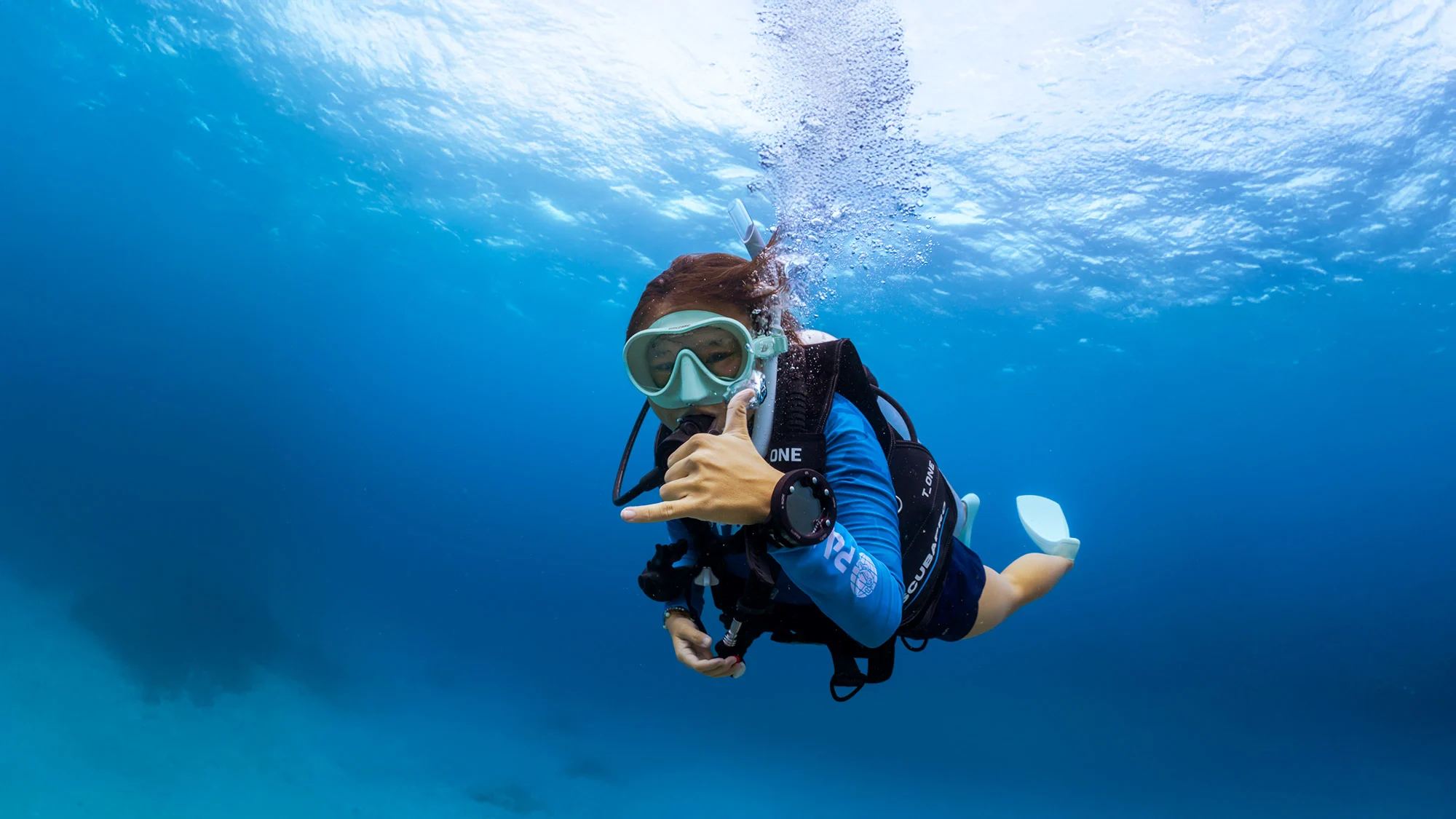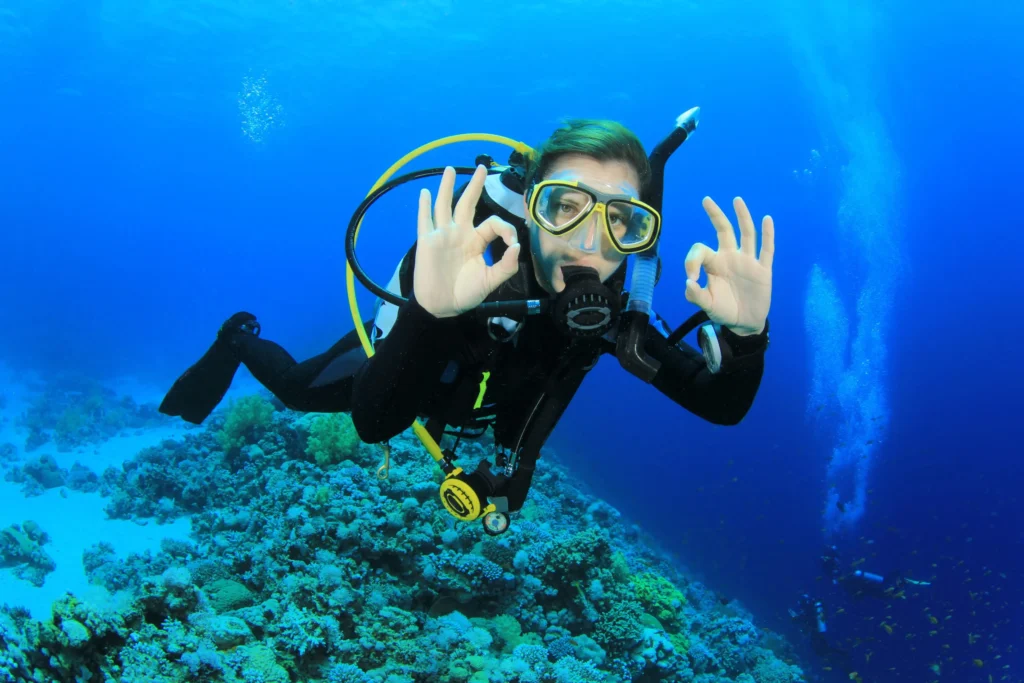
The Red Sea is one of the world’s most iconic scuba diving destinations. Its crystal-clear waters, stunning coral reefs, and rich marine life attract divers from all over the globe. Whether you are a complete beginner taking your first breaths underwater or an experienced diver seeking advanced challenges, Red Sea diving offers unforgettable adventures. From diving Hurghada to exploring Marsa Alam, Sharm el-Sheikh, or remote offshore reefs, this guide takes you through everything you need to know about scuba excursions Egypt.
Why Choose the Red Sea for Diving?
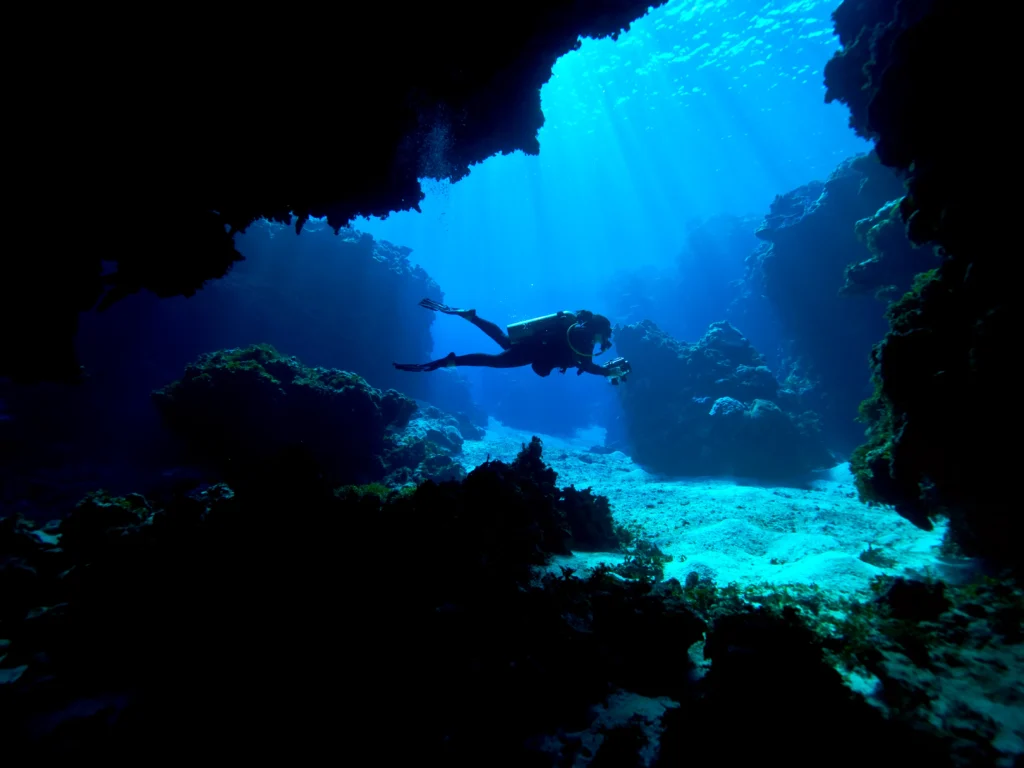
The Red Sea combines accessibility with world-class underwater experiences. Located between Africa and Asia, it offers:
- Year-round diving: Water temperatures range from 22°C in winter to 30°C in summer.
- Exceptional visibility: Often up to 30–40 meters.
- Unique biodiversity: More than 1,200 fish species, 200+ coral types, and many endemics.
- Easy access: Just a few hours by plane from Europe and the Middle East.
- Top infrastructure: Dive centers, liveaboards, and resorts for all levels.
This mix makes it a dream destination for anyone interested in scuba diving in Egypt.
Beginner Diving in the Red Sea
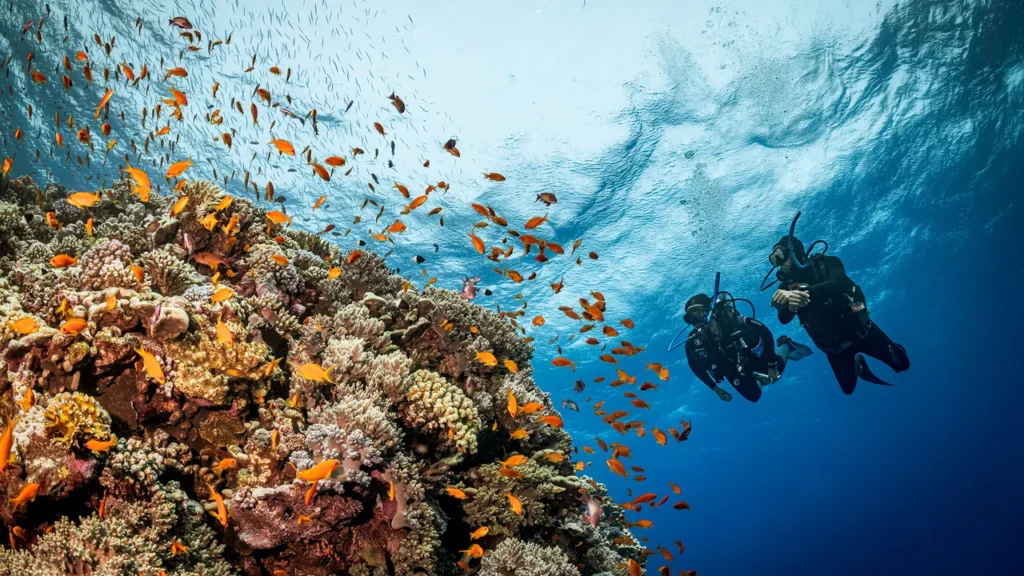
If you’ve never dived before, the Red Sea is an ideal place to start. Calm bays, shallow reefs, and professional instructors create a safe and welcoming environment.
Introductory Experiences
- Discover Scuba Diving: A short trial under professional supervision. Perfect for first-timers.
- Shallow reef dives: Explore colorful fish and coral gardens at just a few meters depth.
- Resort courses: Many hotels in Hurghada and Sharm el-Sheikh have on-site training pools.
Entry-Level Certifications
To take your diving further, international organizations like PADI and SSI offer beginner certifications:
- Open Water Diver: Allows you to dive to 18 meters worldwide.
- Scuba Diver Certification: A shorter course with limited depth (12 meters).
Diving Hurghada is especially popular for beginners due to calm conditions, short boat trips, and many beginner-friendly dive sites.
Advanced Diving Experiences in the Red Sea
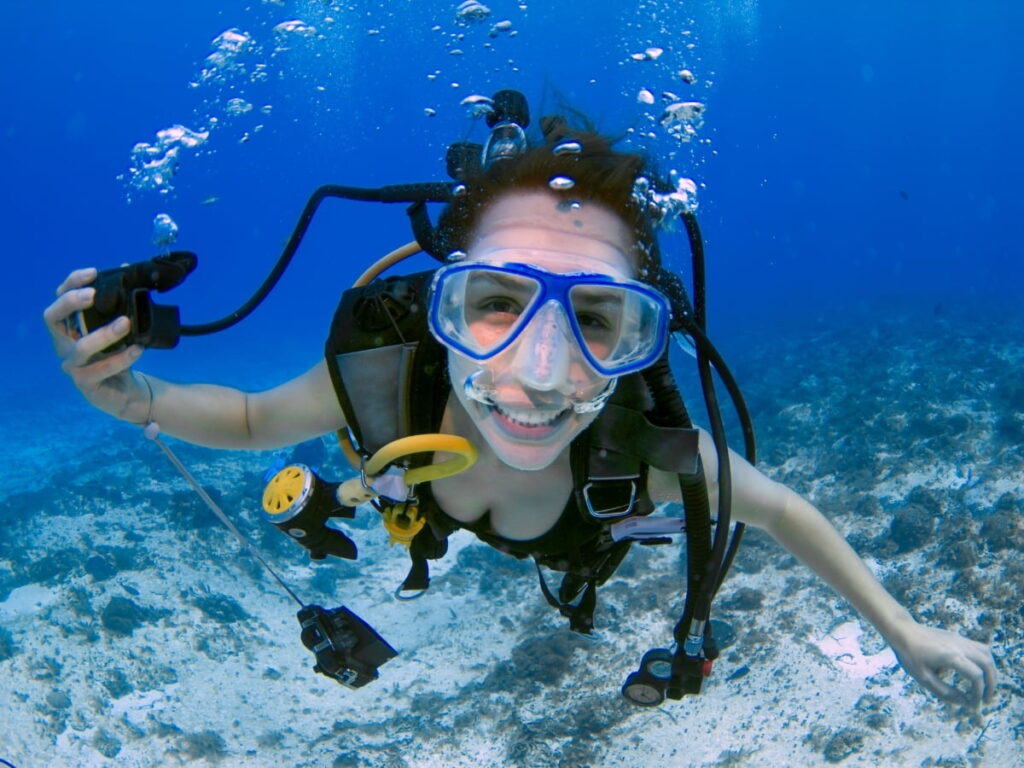
For certified divers, the Red Sea opens up a world of advanced experiences.
Specialty Diving
- Deep Diving: Explore depths up to 40 meters with training.
- Night Diving: Discover nocturnal marine life like octopuses and lobsters.
- Wreck Diving: Famous wrecks like the SS Thistlegorm are underwater museums.
- Drift Diving: Ride strong currents at sites like the Brothers Islands.
Advanced Certifications
- Advanced Open Water Diver: Expands your depth and skills.
- Rescue Diver: Learn to manage emergency situations.
- Tec Diving Certifications: For those seeking extreme depth and technical challenges.
Scuba excursions Egypt often combine advanced courses with adventure trips to remote dive sites, making it easy to improve skills while exploring world-class locations.
Famous Dive Sites in the Red Sea
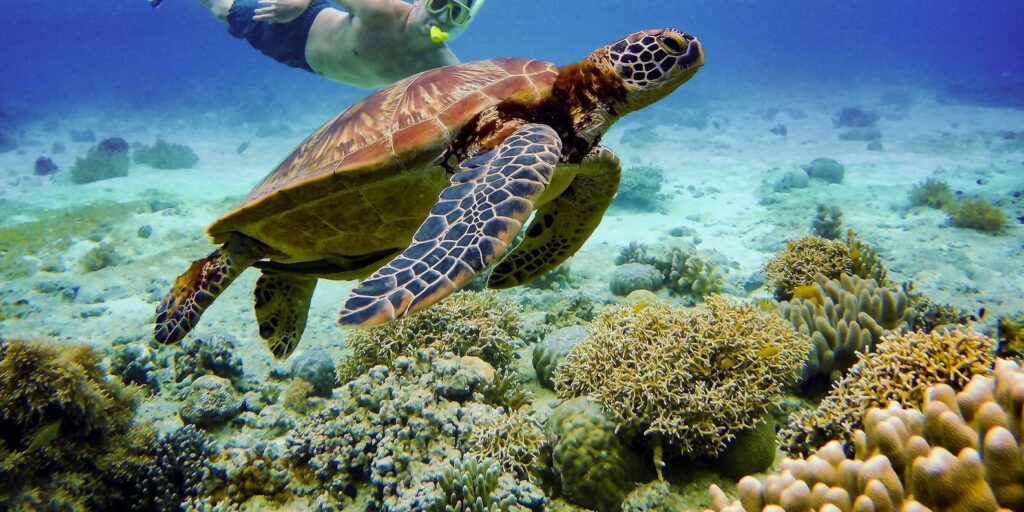
The Red Sea is home to legendary dive spots, each with its own highlights.
1. Ras Mohammed National Park (Sharm el-Sheikh)
- Dramatic walls, giant schools of barracuda, and vibrant soft corals.
- A must-visit for all certified divers.
2. SS Thistlegorm Wreck (near Hurghada/Sharm)
- A WWII British supply ship with motorcycles, trucks, and weapons still intact.
- One of the world’s best wreck dives.
3. Elphinstone Reef (Marsa Alam)
- Steep walls and strong currents.
- Known for encounters with oceanic whitetip and hammerhead sharks.
4. Abu Dabbab Bay (Marsa Alam)
- Ideal for beginners and families.
- Home to sea turtles and the rare dugong (sea cow).
5. The Brothers Islands (Central Red Sea)
- Remote, advanced-only sites with sharks, tuna, and pristine coral.
- Accessed by liveaboard safaris.
6. Giftun Island (Hurghada)
- Easy day trips with excellent coral gardens.
- Great mix of snorkeling and diving excursions.
These sites show why Red Sea diving is ranked among the best in the world.
Marine Biodiversity of the Red Sea
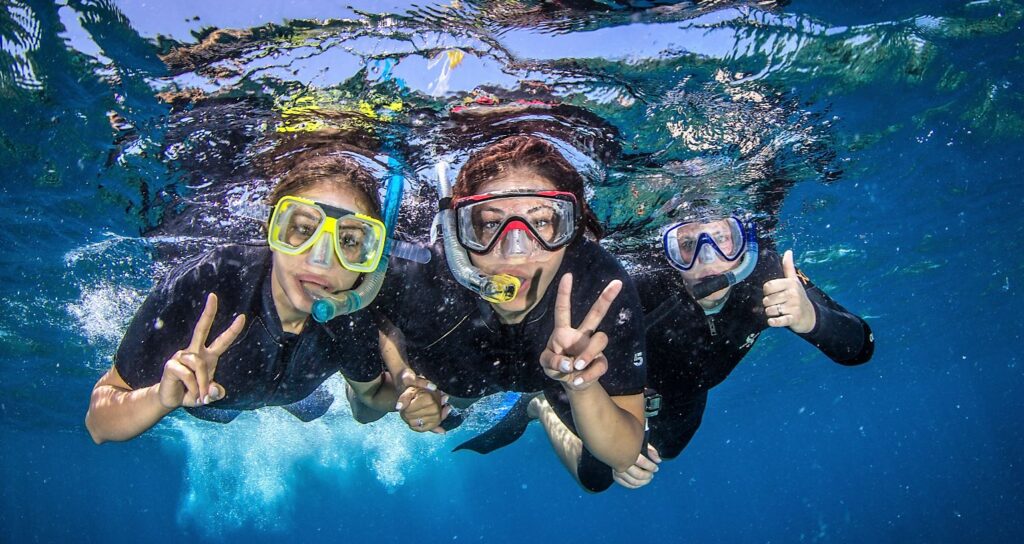
One of the biggest draws of diving in Egypt is the incredible marine biodiversity.
What You Can See
- Reef Fish: Clownfish, butterflyfish, angelfish, and parrotfish.
- Pelagic Species: Barracuda, tuna, manta rays, whale sharks.
- Sharks: Oceanic whitetip, hammerhead, grey reef sharks.
- Macro Life: Nudibranchs, seahorses, cleaner shrimp.
- Turtles & Mammals: Green turtles, hawksbill turtles, dolphins, dugongs.
- Corals: Over 200 species, both hard and soft, with vibrant colors.
Each dive brings a new encounter, making every trip unique.
Liveaboards and Scuba Excursions in Egypt
For divers wanting to maximize their experience, liveaboards (diving cruises) are an excellent option.
- Northern Routes: Focus on wrecks and classic sites like the Thistlegorm.
- Southern Routes: Visit remote reefs like Daedalus, Fury Shoals, and Zabargad.
- Combination Trips: Mix wrecks, reefs, and pelagic hotspots.
Day trips are also widely available from Hurghada, Sharm el-Sheikh, and Marsa Alam, making scuba excursions Egypt flexible for both short holidays and dedicated dive vacations.
Safety Precautions for Red Sea Diving
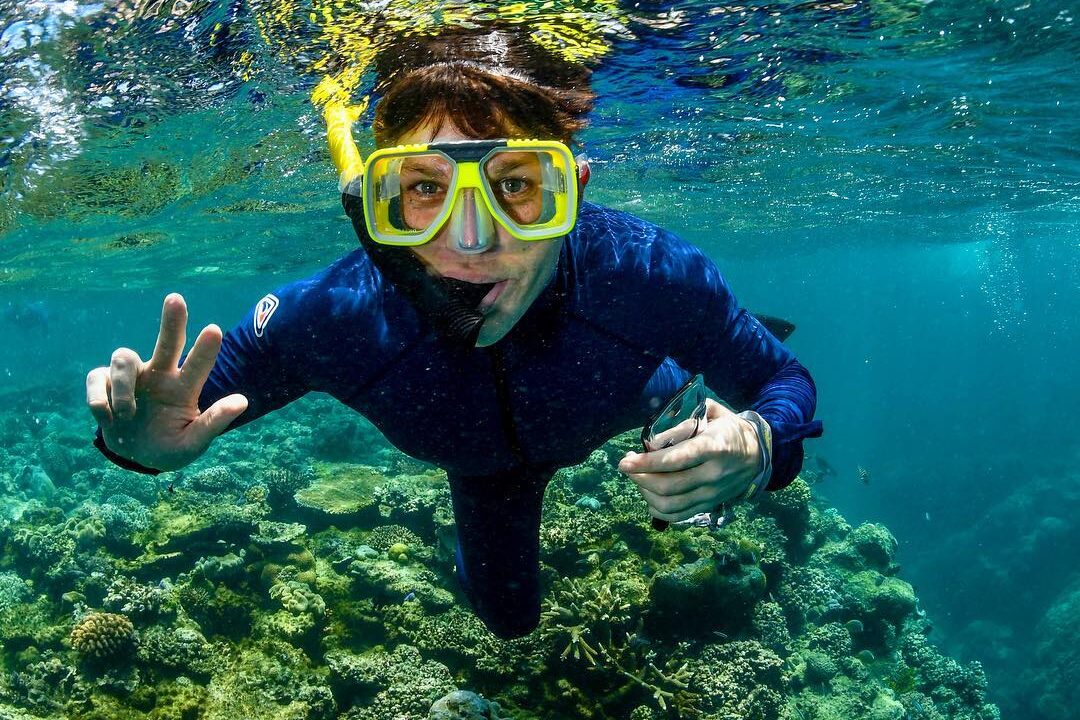
While diving is safe with proper training, it’s important to follow guidelines:
- Never dive alone: Always dive with a buddy.
- Respect limits: Stay within depth and time limits for your certification.
- Check equipment: Test gear before each dive.
- Ascend slowly: Include a safety stop at 5 meters.
- Stay hydrated: The desert climate increases dehydration risk.
- Medical readiness: Ensure you are fit to dive; avoid alcohol before diving.
Emergency facilities, including decompression chambers, are available in Hurghada, Sharm el-Sheikh, and Marsa Alam.
Combining Diving with Relaxation in Egypt
One of the benefits of a Red Sea diving holiday is the ability to combine adventure with relaxation. After an exhilarating day underwater, you can enjoy:
- White sandy beaches.
- Luxurious all-inclusive resorts.
- Desert excursions by quad or camel.
- Cultural tours to Luxor or Cairo.
This variety makes Egypt the ultimate all-round holiday destination.
Best Time for Diving in the Red Sea
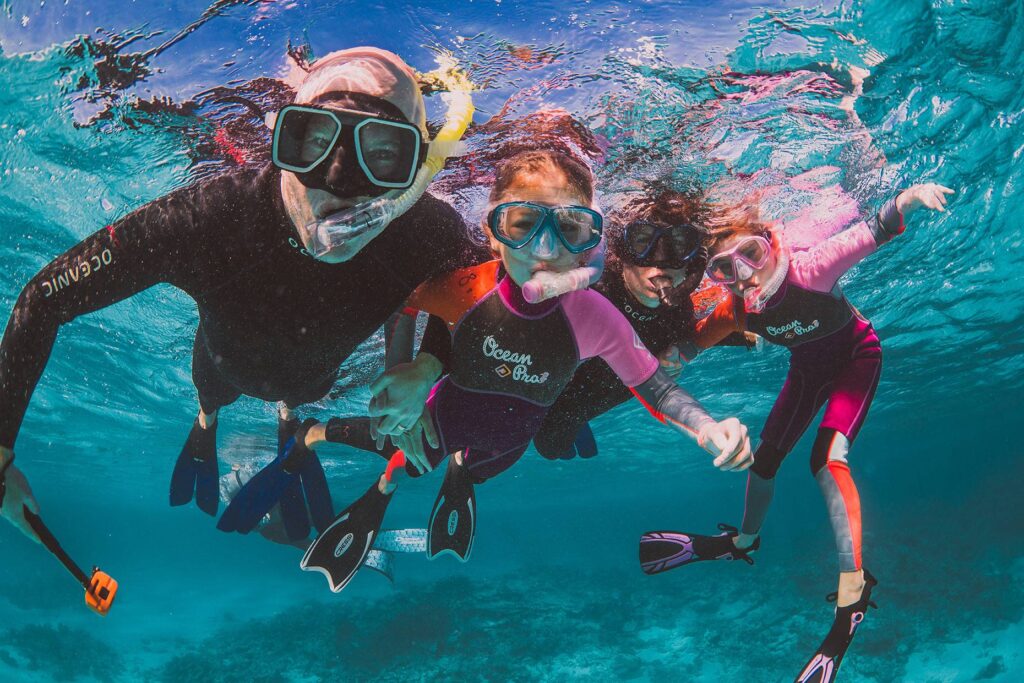
- March–May: Warm water, excellent visibility, abundant marine life.
- June–August: Very hot, but great conditions for pelagics.
- September–November: Peak season for shark sightings.
- December–February: Cooler but quieter, with water around 22–24°C.
The Red Sea is truly a year-round diving destination.
Diving Hurghada vs. Sharm el-Sheikh vs. Marsa Alam
| Location | Best For | Highlights |
|---|---|---|
| Hurghada | Beginners, families, wrecks | Easy access to Giftun Island, Thistlegorm day trips |
| Sharm el-Sheikh | Advanced & beginner mix | Ras Mohammed, Tiran Island |
| Marsa Alam | Advanced divers, nature lovers | Elphinstone, Abu Dabbab, Dolphin House |
Choosing the right base depends on whether you prefer wrecks, sharks, or easy resort diving.
Scuba Diving Certifications in Egypt
Egypt is an excellent place to get certified, with many reputable dive schools.
Common Certification Levels
- PADI/SSI Open Water Diver – entry level.
- Advanced Open Water Diver – deeper dives and navigation skills.
- Rescue Diver – safety-focused, highly recommended.
- Specialties: Nitrox, wreck diving, underwater photography.
- Divemaster & Instructor Courses: For professionals seeking a career in diving.
With diving Hurghada and scuba excursions Egypt, you can gain experience while earning internationally recognized certifications.
Environmental Awareness and Sustainable Diving
Protecting the Red Sea’s fragile ecosystem is vital. Divers should:
- Avoid touching corals or marine life.
- Use reef-safe sunscreen.
- Do not collect shells or souvenirs.
- Support eco-friendly dive operators.
Responsible practices ensure the Red Sea remains a diving paradise for future generations.
Conclusion – Why the Red Sea Should Be on Every Diver’s List
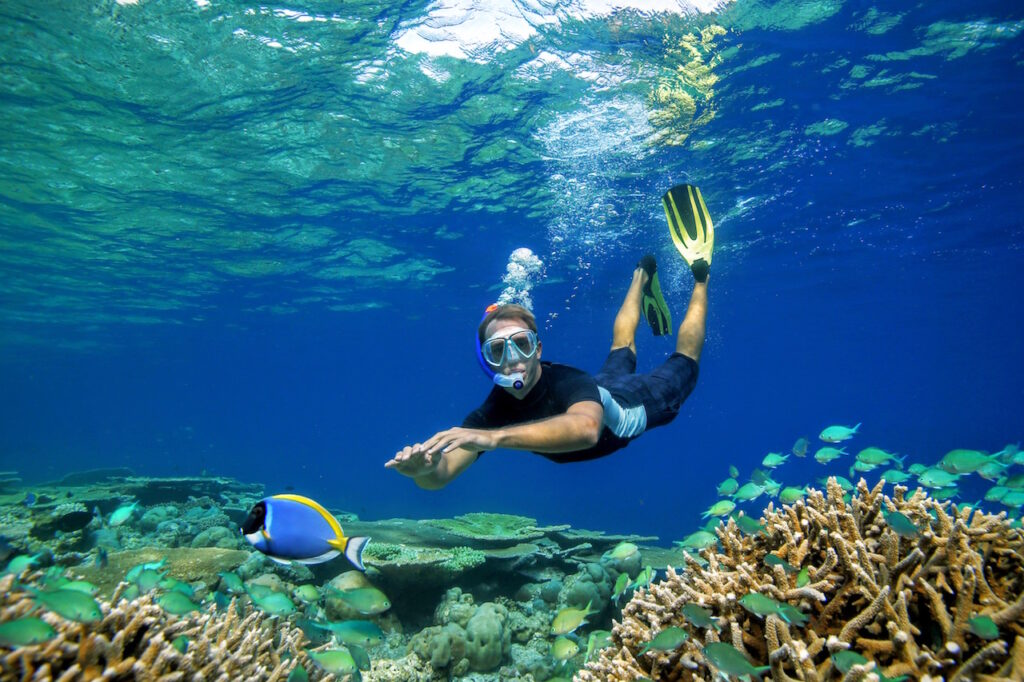
From beginner-friendly reef dives in Hurghada to advanced shark encounters at Elphinstone Reef, the Red Sea delivers unparalleled scuba diving experiences. With its warm waters, excellent visibility, thriving marine life, and world-class infrastructure, scuba excursions Egypt combine adventure, beauty, and safety.
Whether you’re just starting your journey with an Open Water course or are an experienced diver chasing pelagics, the Red Sea has something for everyone. Add in the opportunity to relax on stunning beaches or explore ancient cultural sites, and it’s clear why Red Sea diving is considered one of the best in the world.

